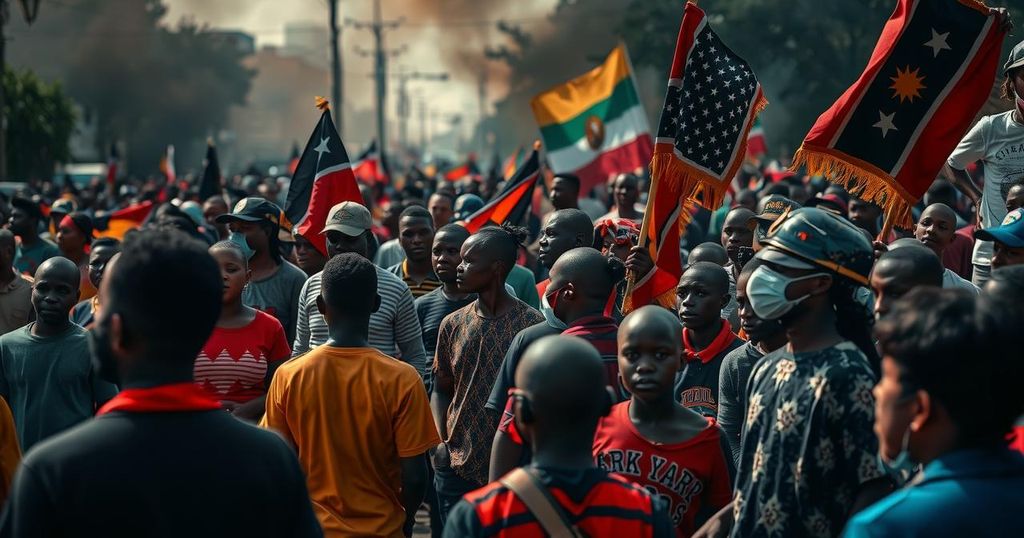Youth-led protests are surging across Africa, addressing issues such as police brutality, corruption, and economic hardships. Recent demonstrations in Kenya against a controversial finance bill have highlighted the urgency of these issues, resulting in calls for political accountability. Similar movements in Senegal, Uganda, Mozambique, and Zimbabwe indicate a strong youth desire for change in leadership and social justice across the continent.
Protest movements are proliferating across Africa, particularly among the youth, who constitute approximately 70% of the continent’s population. The recent protests in Kenya, spurred by the introduction of a controversial finance bill that imposed higher taxes, are emblematic of this trend. Demonstrators, primarily comprised of Gen Z and millennials, demanded governmental accountability and justice, highlighting police brutality as a significant concern. Tragically, these protests resulted in at least 39 fatalities, eliciting calls for President William Ruto’s resignation, despite his reversal of the tax policy.
In neighboring nations, similar youth-led protests are emerging. For instance, Senegal’s youth mobilized against a delayed presidential election that many feared jeopardized democratic principles. In Uganda, climate activists have faced severe repression while resisting a proposed oil pipeline project with potential environmental ramifications. In Mozambique, the death of an influential rapper ignited protests against corruption and social injustice. Meanwhile, in Zimbabwe, students have consistently rallied for political reforms against an entrenched ruling party.
These occurrences underscore the growing demand for political representation and environmental justice among Africa’s youth. With an average presidential age of 62, younger generations express dissatisfaction with leaders who seem disconnected from their aspirations for reform and progress.
The backdrop of protests across Africa is shaped by the continent’s youthful demographics. Approximately 70% of the population in Africa is under 30 years old, positioning the youth at the forefront of socio-political movements. Many young people are challenging an established leadership primarily comprised of older individuals, advocating for change in areas such as governance, economic stability, and social justice. The recent protests underscore the urgency for youth voices and the desire for political accountability and reform.
In conclusion, the surge of youth-led protests across Africa reflects a broader call for change among the continent’s young population. Events in Kenya, Senegal, Uganda, Mozambique, and Zimbabwe reveal a growing discontent with current leadership and an urgent demand for justice and representation. As these movements evolve, they signal a significant shift in Africa’s socio-political landscape, driven by a generation seeking meaningful engagement in their governments and societies.
Original Source: www.context.news






